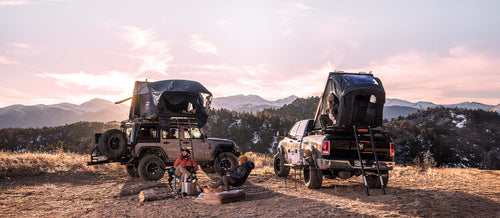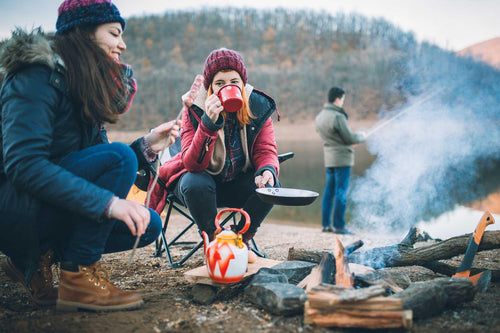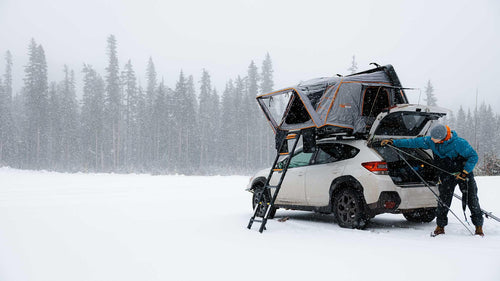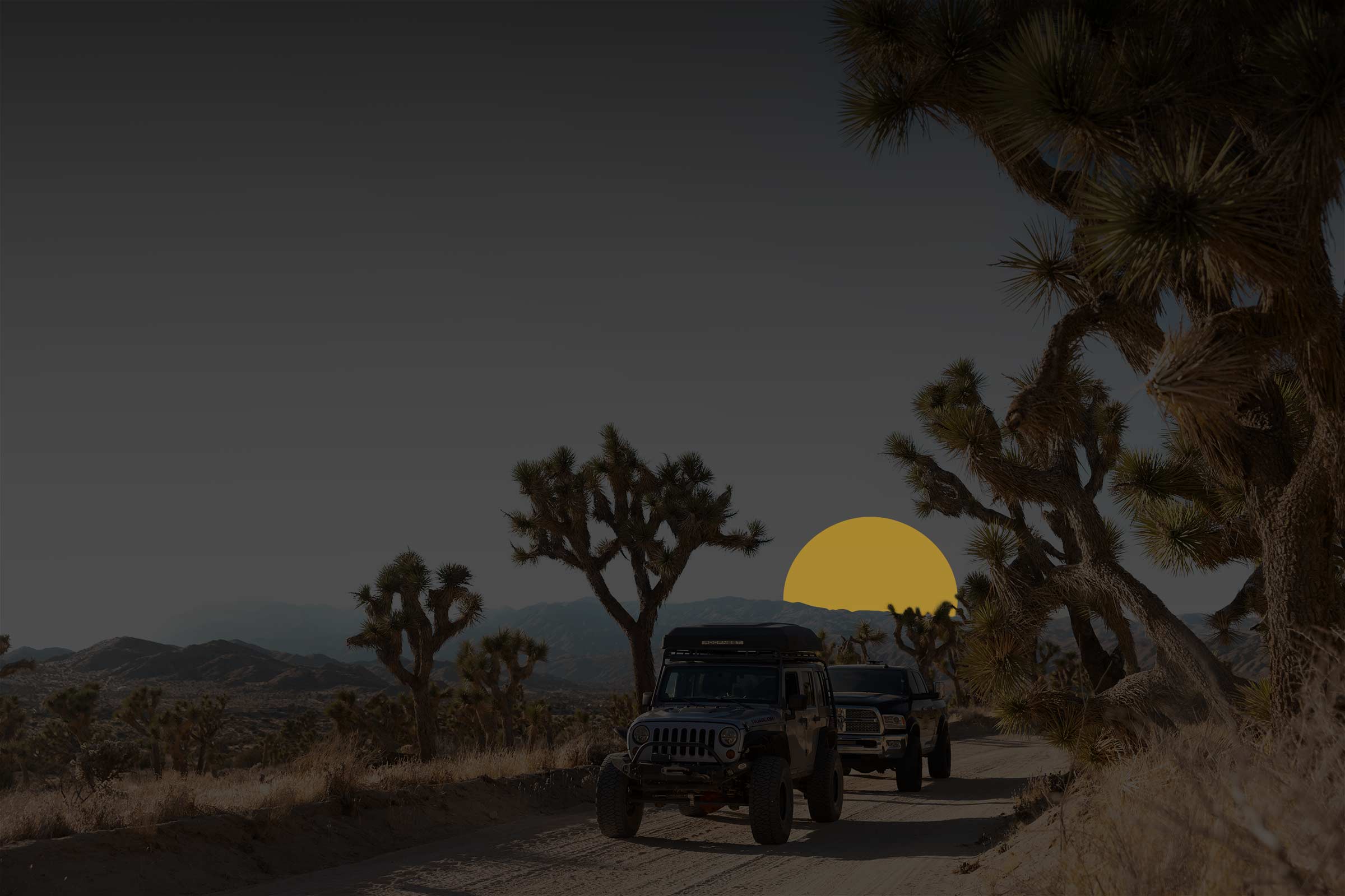From tennis players to swimmers, mountain bikers to skiers, all athletes know that quality sleep is pivotal to bringing their A-game. But how much sleep do you really need to perform your best? Recent studies have revealed that in addition to hydration, nutrition, and condition, sleep (or not enough of it) can significantly impact performance when it comes to staying active. If you’re like us, you probably spend your weekends climbing, hiking, or biking your favorite trails and mountains. All that outdoor time requires a lot of focus, strength, and a good night’s sleep. But sleeping out in nature can make it harder to get comfortable and stay asleep for a full night’s rest — which means feeling worn out and underperforming the next day. Roofnest roof top tents offer a variety of features that can help you fall asleep quickly and stay asleep for optimum recovery time. Not only are you up off the cold or lumpy ground, but the noise-deadening features of our tents help make sure you’re not disturbed by wind, rustling animals, or snoring campers nearby. Not to mention the thick, comfortable foam mattress that’ll have you snoozing in no time. Learn more about the importance of quality sleep for athletes, and how a Roofnest can help you wake up well-rested and ready to take on the day.
Why is Sleep So Important?
Lack of sleep can spell disaster when you’re on the slopes, trail, pool, or field. A 2012 study looked at the impact of fatigue on MLB players. The study found that players’ strike-zone judgment got worse throughout the season due to sleepiness and burnout. The antidote? More Z’s. Coaches and scientists agree that sleep is a key ingredient in improving an athlete’s longevity throughout a long season and preventing premature injury. Intense exercise can take a lot out of your body during the day, making it even more essential to restore your muscles with a good night’s sleep. Sleep recharges your body and brain. With better sleep, you can reduce fatigue, injury, and even the risk of catching an illness. And when you miss out on quality sleep, you may notice yourself feeling more fatigued during the day and unable to perform at your best. This isn’t ideal for any athlete, especially professionals. For this reason, Tennis all-star Venus Williams admits that she uses a good night’s sleep as her secret weapon. “Especially after you train, you need those hours,” Williams told CNBC in a 2019 interview. If you want to enjoy your time hiking, biking, or skiing, it’s always a good idea to get as many hours of rest as you can.
How Much Sleep do Adults Need?
You’ve probably heard that 8 hours of sleep is the standard for an average adult. This can vary for everyone, and some people require more or less sleep to feel refreshed during the day. But regardless of hours, not all sleep is created equal. The best sleep for athletes is REM sleep (Rapid Eye Movement). This is the deepest form of sleep that can happen several times throughout an average sleep cycle. Sleep-deprived athletes who don’t get enough time in the REM cycle are more likely to feel confused and experience lessened reaction times. This can spell injury for many athletes that depend on their hand-eye coordination. If you find yourself in a tent on the cold ground, you may find it harder to slip into this essential sleep cycle. The super comfy 3-inch foam mattress in a Condor 2 XL roof top tent ensures you get the rest you need to crush records and feel energized no matter what you’re taking on the next day.
Why is Sleep So Essential for Athletes?
For many athletes (especially those who play outdoor sports), the day-to-day can involve an intense training and exercise schedule. Lack of sleep can follow you into your waking day — and sometimes a few days later — which can make it harder for athletes to focus. Also known as “brain fog,” this lethargic feeling can make you less alert which can be an issue if you’re up on the slopes or climbing a technical hike. Ever had one too many drinks and felt it the next day? Studies show that just one night of poor rest can impact you even more than being intoxicated! Getting enough restful sleep allows everyone from tennis players to mountain climbers to stay on their toes and remain vigilant during intense activities. “If you told an athlete you had a treatment that would reduce the chemicals associated with stress, that would naturally increase human growth hormone, that enhances recovery rate, that improves performance, they would all do it. Sleep does all of those things.”-Casey Smith, Head Athletic Trainer, Dallas Mavericks It can be a hassle to get comfortable while camping. Adding a Featherbed Air mattress to your camping gear allows you to relax quickly without having to stress over setup or breakdown. You can rest easy knowing you won’t be bothered by curious critters either. Being above ground keeps you out of reach of unwanted bugs, squirrels, and bears that can disturb your sleep.
What Are Some Sleep Tips for Athletes?
Like with all good habits, consistency is key. Athletes with busy schedules may be tempted to skip on sleep, or powernap instead of getting a full 7-8 hours in a row. But shorter periods of sleep are shown to provide less restorative benefits. Just ask NFL quarterback Tom Brady: “Proper sleep has helped me get to where I am today as an athlete and it is something that I continue to rely on every day,” he said of his sleeping habits for Nectar, a sleep aid company. Athletes can plan ahead for their sleep and incorporate rest into a full day’s routine. Avoiding caffeine, alcohol, and excess screen-time can also get you ready to rest and take full advantage of your Z’s. Consider using items from our Insulation collection to help improve tent comfort during all seasons.
Tackle Sleep and Keep Adventuring
While it’s a little different than your bed at home, Roofnest roof top tents are the top choice for outdoor enthusiasts like hikers, backpackers, skiers, bikers, snow-shoers, and the world’s most extreme athletes. There are plenty of long-term health benefits to a good night’s sleep. With a Roofnest, you can experience relaxation on the go and out in nature. If you’re used to biking and hiking, all that winter snow might put a damper on your favorite outdoor activity. But it also presents a perfect opportunity to try something new — like checking out some new terrain during a day of fat biking. Pair your roof top tent with a Litewing Awning for additional covered outdoor space. Read more about why you should try fat biking this winter >




